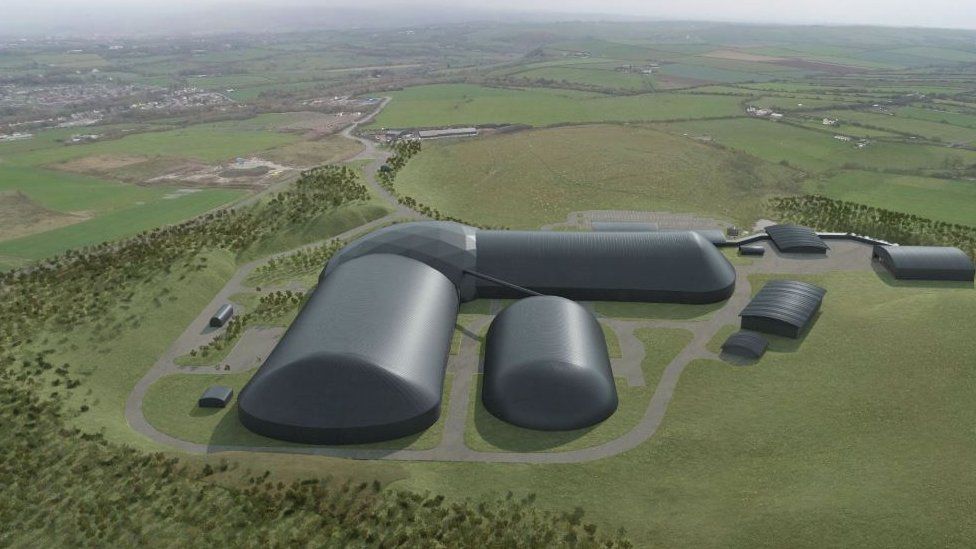
image copyrightWest Cumbria Mining Company
The government’s climate change advisors have rapped ministers for allowing a new coal mine in Cumbria.
They say the site will increase global emissions and compromise the UK’s legally binding carbon budgets.
They warn the decision could undermine its leadership of the vital COP26 climate summit in Glasgow in November.
The new deep coking coal mine was agreed by Cumbria County Council and the government previously said it did not want to intervene.
The rebuke comes in the form of a letter from the chair of the Climate Change Committee (CCC), Lord Deben, to the planning minister Robert Jenrick, which says:
- The decision to award planning permission to 2049 will commit the UK to emissions from coking coal, for which there may be no domestic use after 2035. 85% of the coal is planned for export to Europe
- It is not the CCC’s role to act as a regulator or a planning authority, but we would urge you to consider further the UK’s policy towards all new coal developments, for whatever purpose
- This decision also highlights the critical importance of local councillors and planning authorities considering the implications of their decisions on climate targets. In this regard, I would ask that we discuss the provision of guidance to local authorities
- It is for ministers to decide how the effort to reach Net Zero (almost nil carbon emissions) should be allocated across the economy, but it is also important to note that this decision gives a negative impression of the UK’s climate priorities in the year of COP26
In response to the letter, a government spokesperson said the decision to allow the coal mine would not be reversed.
Cumbria councillors told BBC News there were no good planning grounds for them to refuse permission for the mine, near Whitehaven, and said it would help to diversify local employment prospects.

image copyrightReuters
The government’s chief planning officer Joanna Averley defended Mr Jenrick’s decision not to over-rule their consent for the mine.
She told conference on planning policy arranged by the countryside charity CPRE that the decision was only a local issue.
She was asked why, given the UK’s policies on cutting carbon, Mr Jenrick had not exercised his powers to overrule Cumbria County Council’s approval of the mine.
Ms Averley said: “The Secretary of State has to make a judgement based on whether the impacts of the scheme are more than local.
“And in this case, the decision was that this was a decision for local determination, and the application was approved by the local authority… a decision for local democracy.”
She said the planning department was playing its part in tackling climate change.
Environmentalists have reacted with astonishment and disbelief, saying the carbon from burning coal is clearly a global concern.
John Sauven, from Greenpeace, said: “It’s extraordinary that anyone still believes burning coal is only a local issue and has no global impacts.
“Let’s hope China doesn’t take the same view or the world will be toast. It certainly isn’t setting the global leadership on climate that the prime minister says he’s aspiring to.”
The critics point out that the UK has also helped drive an international group called the Powering Past Coal Alliance.
Supporters of the mine say it will supply coking coal for steel manufacture in the UK and that will save the need to import coal.
Follow Roger on Twitter.
The BBC is not responsible for the content of external sites.
Read MoreFeedzy


